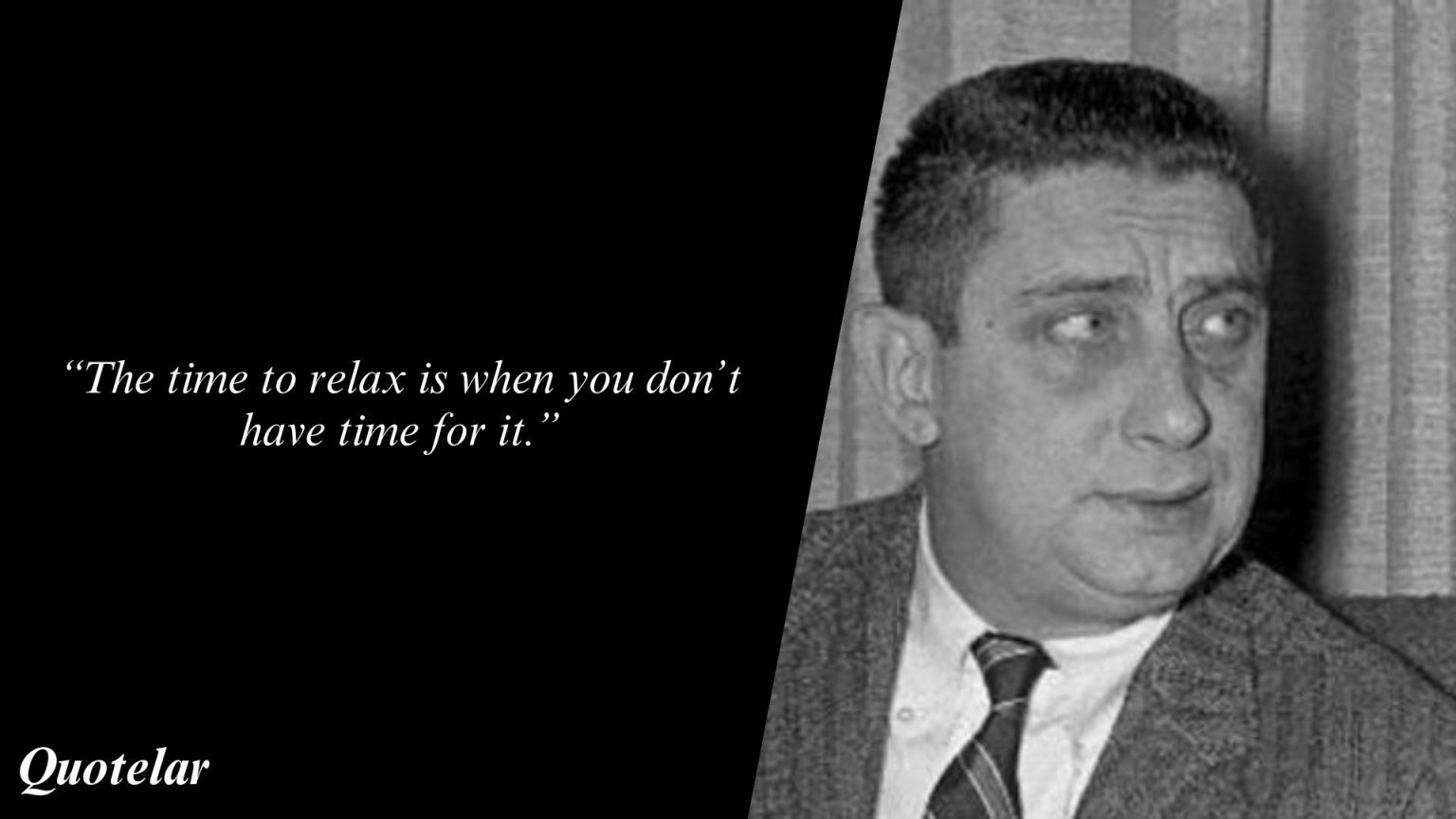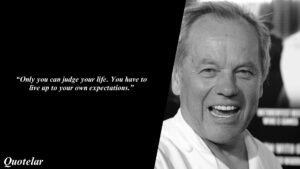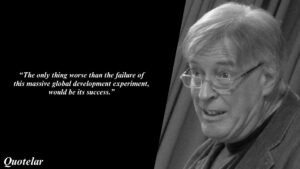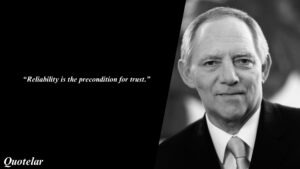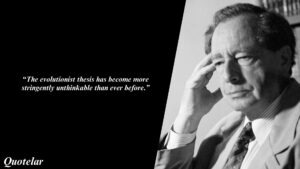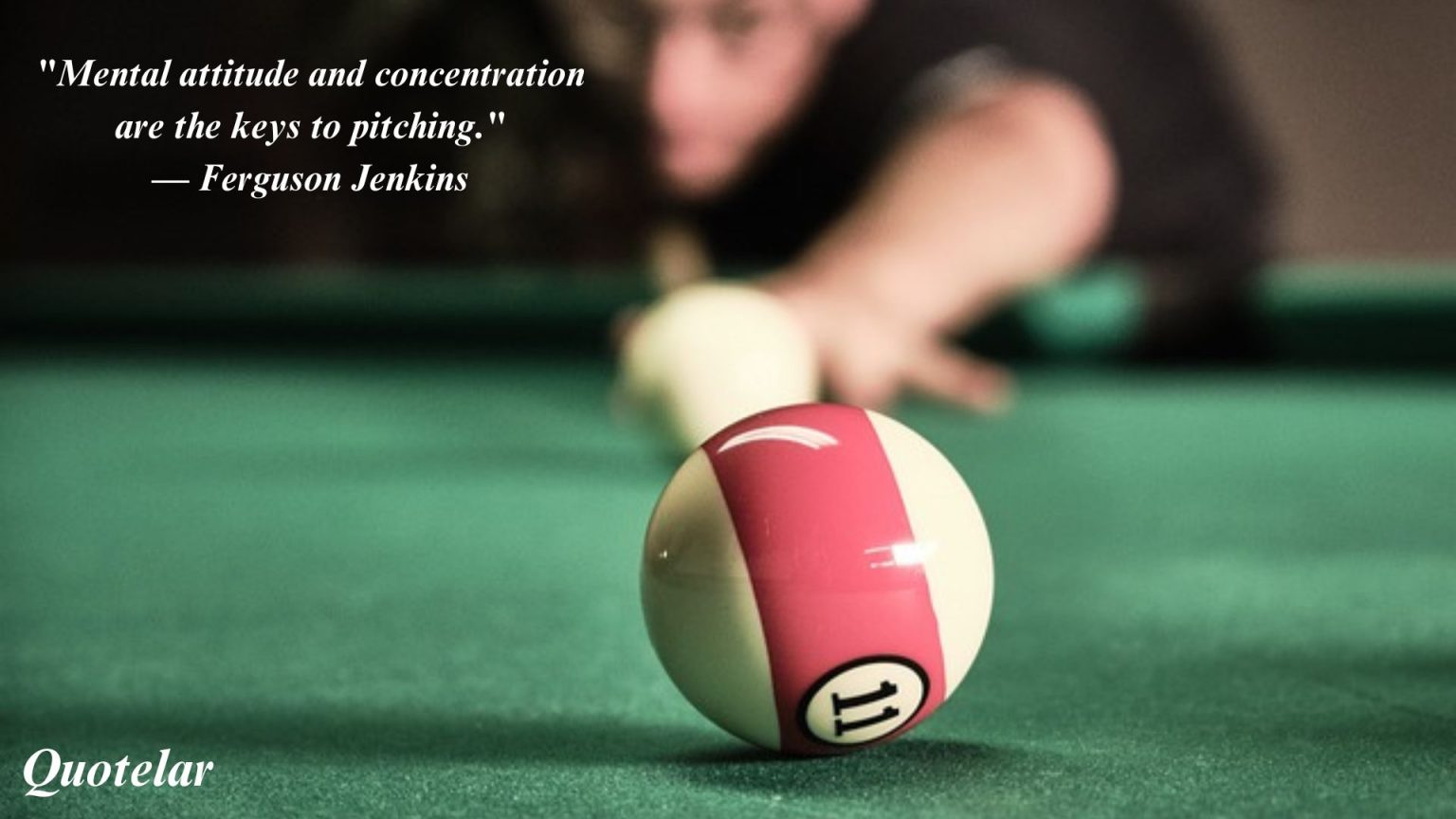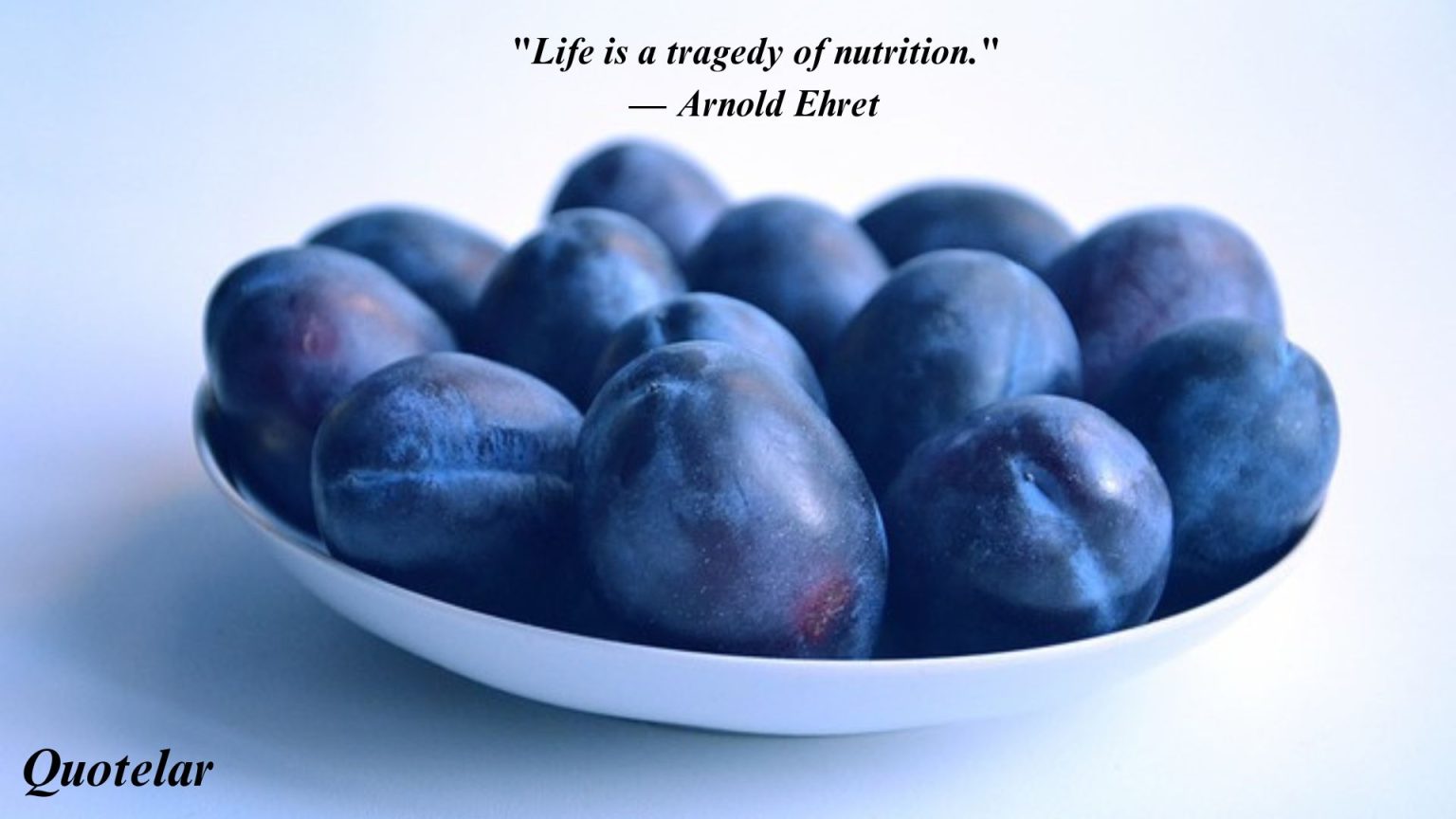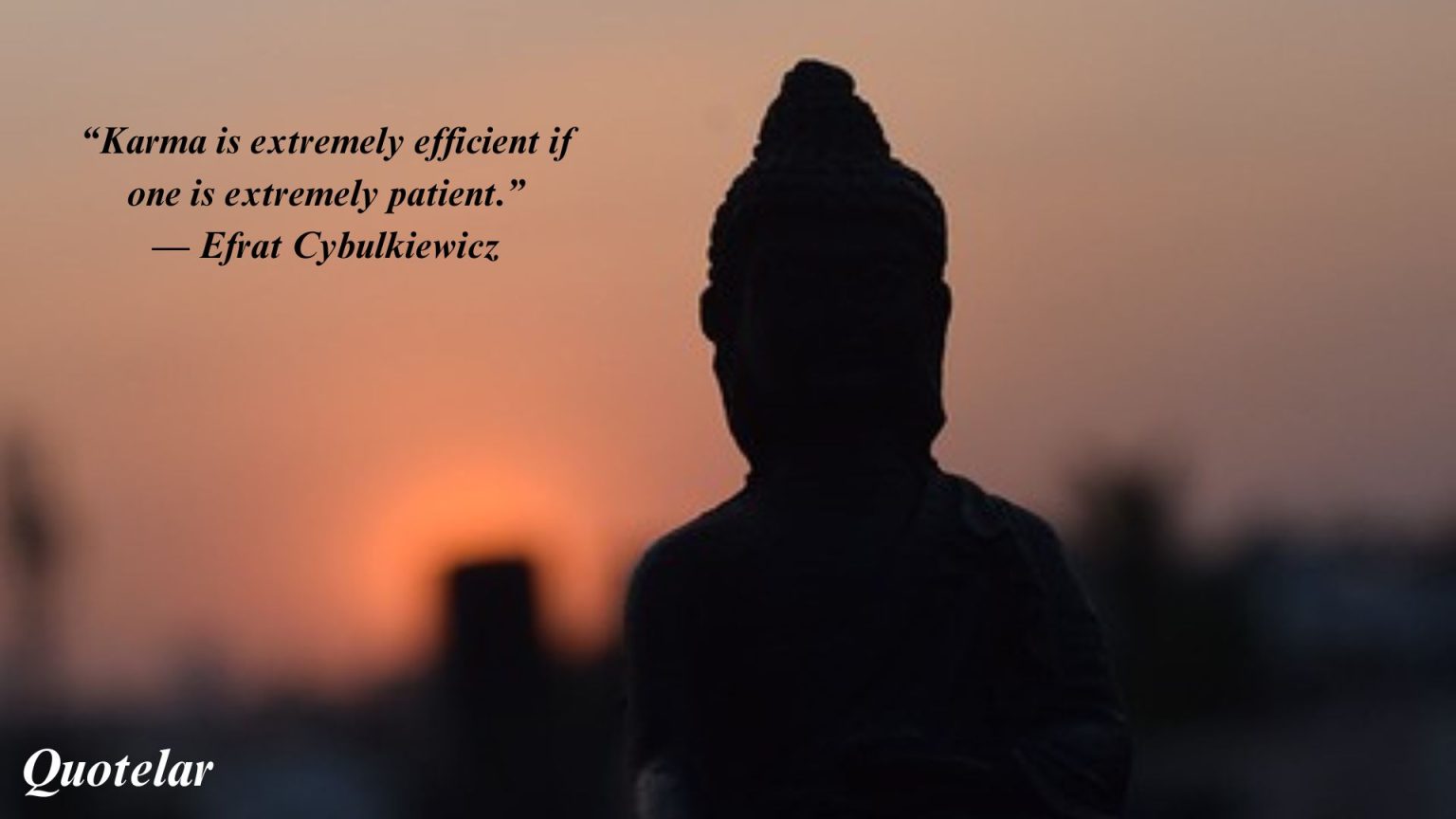Sydney J. Harris (1917-1986) was a notable American journalist and columnist recognized for his insightful commentary on social and philosophical issues. Born in London, he later moved to the United States. His syndicated column, “Strictly Personal,” in the Chicago Daily News and later the Sun-Times, showcased his distinctive writing style, blending wit, humor, and a deep understanding of human behavior. Harris covered a wide range of topics, from ethics to politics. He authored several books, including “Pieces of Eight” and “Happiness Is a Warm Puppy.” Harris’s works reflected keen observations and philosophical reflections on the complexities of human nature. He passed away on December 7, 1986, leaving behind a legacy of influential writings that continue to resonate with readers exploring the intricacies of the human experience.
Sydney J. Harris Quotes
1. “The whole purpose of education is to turn mirrors into windows.”
— Sydney J. Harris
2. “The time to relax is when you don’t have time for it.”
— Sydney J. Harris
3. “Our dilemma is that we hate change and love it at the same time; what we really want is for things to remain the same but get better.”
— Sydney J. Harris
4. “Happiness is a direction, not a place.”
— Sydney J. Harris
5. “The two words ‘information’ and ‘communication’ are often used interchangeably, but they signify quite different things. Information is giving out; communication is getting through.”
— Sydney J. Harris
6. “Regret for the things we did can be tempered by time; it is regret for the things we did not do that is inconsolable.”
— Sydney J. Harris
7. “History repeats itself, but in such cunning disguise that we never detect the resemblance until the damage is done.”
— Sydney J. Harris
8. “Self-discipline without talent can often achieve astounding results, whereas talent without self-discipline inevitably dooms itself to failure.”
— Sydney J. Harris
9. “When I hear somebody sigh, ‘Life is hard,’ I am always tempted to ask, ‘Compared to what?’”
— Sydney J. Harris
10. “If you’re not part of the solution, you’re part of the problem, but the perpetual human predicament is that the answer soon poses its own problems.”
— Sydney J. Harris
11. “At it’s highest level, the purpose of teaching is not to teach – it is to inspire the desire for learning. Once a student’s mind is set on fire, it will find a way to provide its own fuel.”
— Sydney J. Harris
12. “Elitism is the slur directed at merit by mediocrity.”
— Sydney J. Harris
13. “A loser says that’s the way it’s always been done. A winner says there ought to be a better way.”
— Sydney J. Harris
14. “Happiness held is the seed; happiness shared is the flower. A truly happy person is one who can enjoy the scenery while on a detour. Happiness is a direction, not a place.”
— Sydney J. Harris
15. “We believe what we want to believe, what we like to believe, what suits our prejudices and fuels our passions.”
— Sydney J. Harris
16. “Time is love, above all else. It is the most precious commodity in the world and should be lavished on those we care most about.”
— Sydney J. Harris
17. “Maturity begins when we’re content to feel we’re right about something without feeling the necessity to prove someone else wrong.”
— Sydney J. Harris
18. “Law is order in liberty, and without order liberty is social chaos.”
— Sydney J. Harris
19. “A winner rebukes and forgives; a loser is too timid to rebuke and too petty to forgive.”
— Sydney J. Harris
20. “The pessimist sees only the tunnel; the optimist sees the light at the end of the tunnel; the realist sees the tunnel and the light – and the next tunnel.”
— Sydney J. Harris
21. “Most people are mirrors, reflecting the moods and emotions of the times; few are windows, bringing light to bear on the dark corners where troubles fester. The whole purpose of education is to turn mirrors into windows.”
— Sydney J. Harris
22. “A famously wise old man in a village was once asked how he came by his wisdom. “I got it from my good judgment,” he answered. And where did his good judgment come from? “I got it from my bad judgment.””
— Sydney J. Harris
23. “An idealist believes the short run doesn’t count. A cynic believes the long run doesn’t matter. A realist believes that what is done or left undone in the short run determines the long run.”
— Sydney J. Harris
24. “Democracy is the only system that persists in asking the powers that be whether they are the powers that ought to be.”
— Sydney J. Harris
25. “Character is something you forge for yourself; temperament is something you are born with and can only slightly modify.”
— Sydney J. Harris
26. “We truly possess only what we are able to renounce; otherwise, we are simply possessed by our possessions.”
— Sydney J. Harris
27. “A winner knows how much he still has to learn, even when he is considered an expert by others; a loser wants to be considered an expert by others before he has learned enough to know how little he knows.”
— Sydney J. Harris
28. “Any philosophy that can be put in a nutshell belongs there.”
— Sydney J. Harris
29. “The art of listening needs its highest development in listening to oneself; our most important task is to develop an ear that can really hear what we’re saying.”
— Sydney J. Harris
30. “Many people know how to work hard; many others know how to play well; but the rarest talent in the world is the ability to introduce elements of playfulness into work, and to put some constructive labor into our leisure.”
— Sydney J. Harris
31. “If the devil could be persuaded to write a bible, he would title it, “You Only Live Once.””
— Sydney J. Harris
32. “Success is just a little more effort.”
— Sydney J. Harris
33. “Good teaching must be slow enough so that it is not confusing, and fast enough so that it is not boring.”
— Sydney J. Harris
34. “The greatest enemy of progress is not stagnation, but false progress.”
— Sydney J. Harris
35. “Real loneliness consists not in being alone, but in being with the wrong person, in the suffocating darkness of a room in which no deep communication is possible.”
— Sydney J. Harris
36. “Nobody can be so amusingly arrogant as a young man who has just discovered an old idea and thinks it is his own.”
— Sydney J. Harris
37. “Nuclear war is inevitable, says the pessimists; Nuclear war is impossible, says the optimists; Nuclear war is inevitable unless we make it impossible, says the realists.”
— Sydney J. Harris
38. “If a small thing has the power to make you angry, does that not indicate something about your size?”
— Sydney J. Harris
39. “Never take the advice of someone who has not had your kind of trouble.”
— Sydney J. Harris
40. “Once we assuage our conscience by calling something a “necessary evil”, it begins to look more and more necessary and less and less evil.”
— Sydney J. Harris
41. “The paradox of friendship is that it is both the strongest thing in the world and the most fragile. Wild horses cannot separate friends, but whining words can. A man will lay down his life for his friend but will not sacrifice his eardrums.”
— Sydney J. Harris
42. “The primary purpose of a liberal education is to make one’s mind a pleasant place in which to spend one’s leisure.”
— Sydney J. Harris
43. “Those obsessed with health are not healthy; the first requisite of good health is a certain calculated carelessness about oneself.”
— Sydney J. Harris
44. “The best combination of parents consists of a father who is gentle beneath his firmness, and a mother who is firm beneath her gentleness.”
— Sydney J. Harris
45. “Intolerance is the most socially acceptable form of egotism, for it permits us to assume superiority without personal boasting.”
— Sydney J. Harris
46. “Nobody can misunderstand a child as much as his own parents.”
— Sydney J. Harris
47. “The difference between faith and superstition is that the first uses reason to go as far as it can, and then makes the jump; the second shuns reason entirely – which is why superstition is not the ally, but the enemy, of true religion.”
— Sydney J. Harris
48. “The art of living consists in knowing which impulses to obey and which must be made to obey.”
— Sydney J. Harris
49. “Patriotism is wanting what is best for your country. Nationalism is thinking your country is best, no matter what it does.”
— Sydney J. Harris
50. “Honesty consists of the unwillingness to lie to others; maturity, which is equally hard to attain, consists of the unwillingness to lie to oneself.”
— Sydney J. Harris
51. “The commonest fallacy among women is that simply having children makes them a mother – which is as absurd as believing that having a piano makes one a musician.”
— Sydney J. Harris
52. “A winner rebukes and forgives; a loser is too Forgiveness breaks the chain of causality because he who forgives you – out of love – takes upon himself the consequences of what you have done. Forgiveness, therefore, always entails a sacrifice.”
— Sydney J. Harris
53. “Many a secret that cannot be pried out by curiosity can be drawn out by indifference.”
— Sydney J. Harris
54. “Why do so many people yearn for an eternal life when they don’t even know what to do with themselves in this brief one?”
— Sydney J. Harris
55. “Those who imagine that the world is against them have generally conspired to make it true.”
— Sydney J. Harris
56. “The profound immoralities of our time are cruelty, indifference, injustice and the use of others as means rather than ends in themselves.”
— Sydney J. Harris
57. “A cynic is not merely one who reads bitter lessons from the past, his is also one who is permanently disappointed in the future.”
— Sydney J. Harris
58. “You may be sure that when a man begins to call himself a realist he is preparing to do something that he is secretly ashamed of doing.”
— Sydney J. Harris
59. “Why are we willing to accept a new mathematical formula we don’t understand as the product of a brilliant mind, while rejecting a new art form we don’t understand as the product of a deranged mind?”
— Sydney J. Harris
60. “Almost no one is foolish enough to imagine that he automatically deserves great success in any field of activity; yet almost everyone believes that he automatically deserves success in marriage.”
— Sydney J. Harris
61. “Being yourself is not remaining where you are, or being satisfied with what you are. It is the point of departure.”
— Sydney J. Harris
62. “People who think they’re generous to a fault usually think that’s their only fault.”
— Sydney J. Harris
63. “Much as a teacher may wince at the thought, he is also an entertainer – for unless he can hold his audience, he cannot really instruct or edify them.”
— Sydney J. Harris
64. “As WArden Lawes once said of convicts, no man can be called a failure until he has tried something he really likes, and fails at it.”
— Sydney J. Harris
65. “Sometimes the best, and only effective, way to kill an idea is to put it into practice.”
— Sydney J. Harris
66. “Skepticism is not an end in itself; it is a tool for the discovery of truths.”
— Sydney J. Harris
67. “The real danger is not that computers will begin to think like men, but that men will begin to think like computers.”
— Sydney J. Harris
68. “The best thing you can give children, next to good habits, are good memories.”
— Sydney J. Harris
69. “We must become masters of our own actions and attitudes. To let another person determine whether we will be rude or gracious, elated or depressed is to give control of ourselves. The only true possession is self possession.”
— Sydney J. Harris
70. “Confidence, once lost or betrayed, can never be restored again to the same measure; and we learn too late in life that our acts of deception are irrevocable – they may be forgiven, but they cannot be forgotten by their victims.”
— Sydney J. Harris
71. “We have not passed that subtle line between childhood and adulthood until we have stopped saying ‘It got lost,’ and say, ‘I lost it.’”
— Sydney J. Harris
72. “We can often endure an extra pound of pain far more easily than we can suffer the withdrawal of an ounce of accustomed pleasure.”
— Sydney J. Harris
73. “The most important thing in an argument, next to being right, is to leave an escape hatch for your opponent, so that he can gracefully swing over to your side without too much apparent loss of face.”
— Sydney J. Harris
74. “Man’s unique agony as a species consists in his perpetual conflict between the desire to stand out and the need to blend in.”
— Sydney J. Harris
75. “Nothing is as easy to make as a promise this winter to do something next summer; this is how commencement speakers are caught.”
— Sydney J. Harris
76. “Ignorance per se is not nearly as dangerous as ignorance of ignorance.”
— Sydney J. Harris
77. “Men make counterfeit money; in many more cases, money makes counterfeit men.”
— Sydney J. Harris
78. “When we have “second thoughts” about something, our first thoughts don’t seem like thoughts at all – just feelings.”
— Sydney J. Harris
79. “When you run into someone who is disagreeable to others, you may be sure he is uncomfortable with himself; the amount of pain we inflict upon others is directly proportional to the amount we feel within us.”
— Sydney J. Harris
80. “People decline invitations when they are “indisposed” physically, and I wish they would do likewise when they feel indisposed emotionally. A person has no more right to attend a party with a head full of venom than with a throat full of virus.”
— Sydney J. Harris
81. “But what is significant is that if you don’t want to like and accept somebody, one excuse is as good as another. The objective facts don’t matter, and the reasons are never as ‘reasonable’ as we like to think they are.”
— Sydney J. Harris
82. “The principal difference between love and hate is that love is a irradiation, and hate is a concentration. Love makes everything lovely; hate concentrates itself on the object of its hatred.”
— Sydney J. Harris
83. “People who won’t help others in trouble “because they got into trouble through their own fault” would probably not throw a lifeline to a drowning person until they learned whether that person fell in through his or her own fault or not.”
— Sydney J. Harris
84. “Between the semi-educated, who offer simplistic answers to complex questions, and the overeducated, who offer complicated answers to simple questions, it is a wonder that any questions get satisfactorily answered at all.”
— Sydney J. Harris
85. “The founder of every creed from Jesus Christ to Karl Marx, would be appalled to return to earth and see what has been made of that creed, not by its enemies, but by its most devoted adherents.”
— Sydney J. Harris
86. “No one should pay attention to a man delivering a lecture or a sermon on his “philosophy of life” until we know exactly how he treats his wife, his children, his neighbors, his friends, his subordinates and his enemies.”
— Sydney J. Harris
87. “Many persons of high intelligence have notoriously poor judgement.”
— Sydney J. Harris
88. “Almost every man looks more so in a belted trench coat.”
— Sydney J. Harris
89. “By the time a man asks you for advice, he has generally made up his mind what he wants to do, and is looking for confirmation rather than counseling.”
— Sydney J. Harris
90. “We evaluate others with a Godlike justice, but we want them to evaluate us with a Godlike compassion.”
— Sydney J. Harris
91. “Middle Age is that perplexing time of life when we hear two voices calling us, one saying, ‘Why not?’ and the other, ‘Why bother?’”
— Sydney J. Harris
92. “There’s no point in burying a hatchet if you’re going to put up a marker on the site.”
— Sydney J. Harris
93. “Perseverance is the most overrated of traits, if it is unaccompanied by talent; beating your head against a wall is more likely to produce a concussion in the head than a hole in the wall.”
— Sydney J. Harris
94. “The truest test of independent judgment is being able to dislike someone who admires us, and to admire someone who dislikes us.”
— Sydney J. Harris
95. “Enemies, as well as lovers, come to resemble each other over a period of time.”
— Sydney J. Harris
96. “And most of the failures in parent-child relationships, from my observation, begin when the child begins to acquire a mind and a will of its own, to make independent decisions and to question the omnipotence or the wisdom of the parent.”
— Sydney J. Harris
97. “Take away grievances from some people and you remove their reasons for living; most of us are nourished by hope, but a considerable minority get psychic nutrition from their resentments, and would waste away purposelessly without them.”
— Sydney J. Harris
98. “The main discomfort in being a middle-of-the-roader is that you get sideswiped by partisans going in both directions.”
— Sydney J. Harris
99. “It may be true that the weak will always be driven to the wall; but it is the task of a just society to see that the wall is climbable.”
— Sydney J. Harris
100. “Isolation always perverts; when a man lives only among his own sort, he soon begins to believe that his sort are the best sort. This attitude breeds both the arrogance of the conservative and the bitterness of the radical.”
— Sydney J. Harris
101. “A ‘penchant for telling the truth’ can cripple a candidates chances faster than being caught in flagrante delicto with the governor’s wife.”
— Sydney J. Harris
102. “God cannot be solemn, or he would not have blessed man with the incalculable gift of laughter.”
— Sydney J. Harris
103. “The greatest educational dogma is also its greatest fallacy: the belief that what must be learned can necessarily be taught.”
— Sydney J. Harris
104. “Why do most Americans look up to education and down upon educated people?”
— Sydney J. Harris
105. “As the horsepower in modern automobiles steadily rises, the congestion of traffic steadily lowers the average possible speed of your car. This is known as Progress.”
— Sydney J. Harris
106. “Marriages we regard as the happiest are those in which each of the partners believes he or she got the best of it.”
— Sydney J. Harris
107. “The beauty of ‘spacing’ children many years apart lies in the fact that parents have time to learn the mistakes that were made with the older ones – which permits them to make exactly the opposite mistakes with the younger ones.”
— Sydney J. Harris
108. “Gourmet: Usually little more than a glutton festooned with credit cards.”
— Sydney J. Harris
109. “When we inform, we lead from strength; when we communicate, we lead from weakness – and it is precisely this confession of mortality that engages the ears, heads and hearts of those we want to enlist as allies in a common cause.”
— Sydney J. Harris
110. “Many people feel “guilty” about things they shouldn’t feel guilty about, in order to shut out feelings of guilt about things they should feel guilty about.”
— Sydney J. Harris
111. “Many married couples separate because they quarrel incessantly, but just as many separate because they were never honest enough or courageous enough to quarrel when they should have.”
— Sydney J. Harris
112. “When a baseball player makes an error, it goes into the record and is published. How many of us could stand this sort of daily scrutiny?”
— Sydney J. Harris
113. “If you cannot endure to be thought in the wrong, you will begin to do terrible things to make the wrong appear right.”
— Sydney J. Harris
114. “Genealogy: A perverse preoccupation of those who seek to demonstrate that their forebears were better people than they are.”
— Sydney J. Harris
115. “The world has always been betrayed by decent men with bad ideals.”
— Sydney J. Harris
116. “Sincerity that thinks it is the sole possessor of the truth is a deadlier sin than hypocrisy, which knows better.”
— Sydney J. Harris
117. “All our efforts to attain immortality-by statesmanship, by conquest, by science or the arts-are equally vain in the long run, because the long run is longer than any of us can imagine.”
— Sydney J. Harris
118. “But the culture-vultures and the intellectual snobs, and the self-appointed guardians of the Muses, often frighten off the average person from the free development of this appetite.”
— Sydney J. Harris
119. “Every morning I take out my bankbook, stare at it, shudder – and turn quickly to my typewriter.”
— Sydney J. Harris
120. “The lusts of the flesh can be gratified anywhere; it is not this sort of license that distinguishes New York. It is rather, a lust of the total ego for recognition, even for eminence. More than elsewhere, everybody here wants to be somebody.”
— Sydney J. Harris
121. “Somebody who never got over the embarrassing fact that he was born in bed with a lady.”
— Sydney J. Harris
122. “The severest test of character is not so much the ability to keep a secret as it is, when the secret is finally out, to refrain from disclosing that you knew it all along.”
— Sydney J. Harris
123. “Just as communism always begins with an appeal to “humanity” and equality” and ends with inhuman despotism, so does fascism always begin with an appeal to “nationalism” and “individualism,” and ends with a military collectivism far worse than the disease it purports to cure.”
— Sydney J. Harris
124. “A truly successful person knows how to overcome the past, use the present, and prepare for the future-but unless we can first surmount the past, we cannot effectively cope with either the present or the future.”
— Sydney J. Harris
125. “It is not only useless, it is harmful, to believe in oneself until one truly knows oneself. And to know oneself means to accept our moments of insanity, of eccentricity, of childishness and blindness.”
— Sydney J. Harris
126. “Parents should learn to stop nagging their children about how well they could do “if you only tried more, or cared more.” Trying and caring, in specific areas, is built into people; or else it comes to them later, if they mature properly; or it never comes at all. But it is dead certain that no young person was ever motivated by a querulous, disappointed parent more concerned with his own pride than with the child’s ultimate self-actualization.”
— Sydney J. Harris
127. “Western civilization has not yet learned the lesson that the energy we expend in ‘getting things done’ is less important than the moral strength it takes to decide what is worth doing and what is right to do.”
— Sydney J. Harris
128. “There is no such thing as an “atrocity” in warfare that is greater than the atrocity of warfare itself.”
— Sydney J. Harris
129. “A good talker is sensitive to expression, to tone and color and inflection in human speech. Because he himself is articulate, he can help others to articulate their half-formulated feelings. His mind fills in the gaps, and he becomes, in Socrates’ words, a kind of midwife for ideas that are struggling to be born.”
— Sydney J. Harris
130. “The principal difference between love and hate is that love is an irradiation, and hate is a concentration. Love makes everything lovely; hate concentrates itself on the object of its hatred. All the fearful counterfeits of love – possessiveness, lust, vanity, jealousy – are closer to hate: they concentrate on the object, guard it, suck it dry.”
— Sydney J. Harris
131. “The deepest and rarest kind of courage has nothing to do with feats or obstacles in the outside world; and, indeed, has nothing to do with the outside world – it is the courage to be who you are.”
— Sydney J. Harris
132. “As long as there are human beings, there will be the idea of brotherhood – and an almost total inability to practice it.”
— Sydney J. Harris
133. “Just about the only interruption we don’t object to is applause.”
— Sydney J. Harris
134. “It’s odd that the people who worry whether certain plays are “morally offensive” so rarely worry about the moral offensiveness of war, poverty, bigotry.”
— Sydney J. Harris
135. “We are all too fond of naive answers to complex questions because it relieves us of the necessity of thinking hard and it permits us to find a scapegoat for our own mistakes. The simple answer almost always places the blame on someone else. We need to pluralize our thinking, to recognize that if you ask the wrong question, you cannot get the right answers.”
— Sydney J. Harris
136. “Filth is always a sign of weakness – in the mouth of the user and in the mind of the writer.”
— Sydney J. Harris
137. “The Unconvincibles are the people who are not amenable to reason of any sort. Their minds are not only closed, but bolted and hermetically sealed. In most cases, their beliefs congealed at an early age; by the time they left their teens, they were encased in a rigid framework of thought and feeling, which no evidence or argument can penetrate.”
— Sydney J. Harris
138. “Knowledge fills a large brain; it merely inflates a small one.”
— Sydney J. Harris
139. “More trouble is caused in this world by indiscreet answers than by indiscreet questions.”
— Sydney J. Harris
140. “Making out an invitation list for a party brings out the worst in everyone. It is then that our most ruthless estimates of the people we know come into play.”
— Sydney J. Harris
141. “All significant achievement comes from daring from experiment from the willingness to risk failure.”
— Sydney J. Harris
142. “It’s surprising how many persons go through life without ever recognizing that their feelings toward other people are largely determined by their feelings toward themselves, and if you’re not comfortable within yourself, you can’t be comfortable with others.”
— Sydney J. Harris
143. “Patriotism is proud of a country’s virtues and eager to correct its deficiencies; it also acknowledges the legitimate patriotism of other countries, with their own specific virtues. The pride of nationalism, however, trumpets its country’s virtues and denies its deficiencies, while it is contemptuous toward the virtues of other countries. It wants to be, and proclaims itself to be, “the greatest”, but greatness is not required of a country; only goodness is.”
— Sydney J. Harris
144. “Any creed whose basic doctrines do not include respect for the creeds of others, is simply power politics masquerading as philosophy.”
— Sydney J. Harris
145. “In a real sense, all of us are “the parents” of all young children – because we help shape the culture and determine its values.”
— Sydney J. Harris
146. “In most cases, it gives a false impression of my views – but when i am confronting an extremist, I become a passionate defender of the opposite view… This, of course, is a senseless way to behave; it is over-reacting to a situation. But, in all fairness, there is something about extremism that breeds its own opposite.”
— Sydney J. Harri
